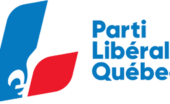Molly Minturn - My family is heartbroken to share that my father died in surgery on Monday, Feb. 10. It…
Wednesday Night #1993
Written by Diana Thebaud Nicholson // May 27, 2020 // Wednesday Nights // Comments Off on Wednesday Night #1993
For the next weeks, we plan to focus on some of the topics from this Globe & Mail piece
How will COVID-19 change our lives, our country, our cities and our world?
In Canada, masks will be ubiquitous, health care will go virtual and old, unhealthy habits will die – but around the world, we could be in for a coronavirus-created Cold War. Here are some of the ways experts and observers predict our lives will change.
For tonight, we will briefly survey the current pandemic situation and possible geopolitical outcomes by starting with these two topics (you’ll have to scroll down)
Please read them and stake out a position –agreement or not- you may be called on to defend it!
COVID-19 will ignite the next Cold War
Nathan Vanderklippe writes “Mutual suspicion. Ideological rivalry. Military and technological competition. Angry rhetoric. Battles for foreign influence played out in proxy states. A space race. For years, strains have grown between China and the U.S. — and Western countries more broadly. Now, the pandemic has added new impetus to those determined to pry apart the thicket of trade, industrial and academic ties that have interwoven China and the West. A new cold war has begun, and the virus can be seen as the starting point, said Shen Dingli, one of China’s top scholars in international relations.”
Is ignite the appropriate word? Perhaps exacerbate existing tensions between the U.S. and China? And should we not also consider rifts that will appear in relations between other countries and regions?
Is China taking advantage of disarray in the U.S. to foment trouble with India? Our friend C. Uday Bhaskar writes that the India-China stand off in Ladakh is different and disturbing
Meanwhile, China has attacked Hong Kong‘s autonomy while most of the world is looking elsewhere.
And what of Russia? Tatiana Stanovaya of the Carnegie Moscow Center writes that “The pandemic has revealed a truth of the Russian government. Vladimir Putin has become increasingly disengaged from routine matters of governing and prefers to delegate most issues” (The Putin Regime Cracks). Russia’s coronavirus caseload surpassed 360,000 — third-highest in the world — with almost 9,000 new infections registered. Only the United States and Brazil have more.
Meanwhile, COVID-19 disinformation being spread by Russia, China, say experts Canadian Philip Howard heads the Oxford Internet Institute, a U.K.-based academic body studying the sociology of the internet. He said the pandemic has seen an increase in misinformation and disinformation related to COVID-19 being spread by sources related to foreign governments.”We’ve seen quite a significant uptick in misinformation generated by foreign state actors, particularly from Russia and China,” Howard told CBC News. “In fact, 92 per cent of the misinformation from state-backed agencies around the world originates from Russia and China.”
The WEF held a media briefing on Africa Day, 25 May, giving a quite upbeat report on the coronavirus situation in Africa. Noting that “there is a likelihood that some cases may be missed”, the WHO chief commended the continent for having only 1.5% of the world’s reported cases of COVID-19 and less than 0.1% of deaths, adding: “Africa is the least-affected region globally in terms of the number of COVID-19 cases and deaths reported to WHO.”
So what’s behind Africa’s coronavirus containment? Countries across the continent have “garnered a great deal of experience from tackling infectious diseases like polio, measles, Ebola, yellow fever, influenza and many more”; African governments were quick to take action and slow the spread of the virus, despite the cost to communities and economies, said Dr Matshidiso Moeti, Regional Director of the Africa region.
However, Debt, coronavirus and locusts create a perfect storm for Africa. We are reminded that an average swarm of 40 million locusts can travel up to 90 miles and eat enough food to feed 35,000 people in a single day. Unfortunately, East Africa’s long rains and planting season is coinciding with the spread of the locust swarms. Due to the rains, the region is producing an abundance of vegetation, which allows these locust populations to mature and explode into the billions.
On top of that, the arrival of the COVID-19 pandemic on the continent only serves to complicate the response of vulnerable East African communities. Considering these threats, the path to acute food insecurity and economic backsliding is ominously clear.
While we are all familiar with the Trumpian behaviour of Jair Bolsonaro, coverage of the situation in the rest of Latin America has been scarce. However, the Center for Infectious Disease Research and Policy states that modeling projections suggest that several countries in Latin America will see increases in the weeks ahead. They reflect a steep increase for Nicaragua and accelerating outbreaks in some Central American countries, including El Salvador and Guatemala. Further increases are predicted for Mexico, Brazil, Peru, Chile, and Ecuador. See Tough weeks ahead for South America’s COVID-19 hot spots
Ali has thoughts about disruptive actions Iran could take either pre- or post- the U.S. elections.
These relevant articles: Iran’s strategy for fighting covid-19 could backfire ; The Next Iranian Revolution Why Washington Should Seek Regime Change in Tehran and The Twilight of the Iranian Revolution may shape your thinking. How much impact will Covid-19 have on Middle East geopolitics? It may not be the pandemic itself, but the famine that is predicted to follow.
Israel’s recent actions have less to do with covid-19 and more to do with Bibi’s survival as he faces his corruption trial. Ergo the July 1 West Bank annexation with blithe disregard of the stated requirements of the Peace Plan (see Israeli Annexation Explained: What Is Netanyahu Planning for the West Bank and What Does It Mean
In a geopolitical vacuum, Canada will need to cling to friends
Mark MacKinnon writes “For the past five years, Canada has based its foreign policy on support for multilateral institutions such as the United Nations. The “rules-based international order,” as Deputy Prime Minister Chrystia Freeland calls it, was supposed to keep the country safe. It’s hard to feel safe in 2020 as the old world order continues to collapse under the weight of rising populism and protectionism, and now a borderless pandemic. But with few better options on the horizon, Canada has little choice but to tighten its bonds to countries such as Germany and France that share its outlook and values – at least until the outcome of the next U.S. election is known. In the previous great international test – the 2008 financial crisis – international organizations, led by the G20, helped pull the world through and avert an even worse outcome.”
To stimulate some thoughts, check out Canada: International relations and foreign policy June 2019 –
We invite you particularly to consider whether pursuit of the UN Security Council Seat is a good idea and what should be Canada’s stance vis à via China going forward.
Whether or not we think it is a good idea, the vote for the Security Council seat is on 17 June and Canada continues to pursue support. Trudeau to co-host United Nations meeting as vote for Security Council seat nears “Prime Minister Justin Trudeau will co-host a virtual United Nations meeting on the COVID-19 pandemic this week, as Canada enters its final stretch of campaigning for a UN Security Council seat.Thursday’s meeting will focus on the international development emergency caused by the pandemic and will be co-hosted by Mr. Trudeau, UN Secretary-General Antonio Guterres and Jamaican Prime Minister Andrew Holness. The event comes as Mr. Trudeau reaches out to world leaders for support ahead of the Security Council vote on June 17.”
Thank you, Andrew Caddell for the timely Hill Times column China is hardening, not softening, and we should be concerned
UPDATE: Huawei CFO Meng Wanzhou loses key court battle as B.C. judge rules extradition bid should proceed
In a widely anticipated decision on so-called double criminality, Associate Chief Justice Heather Holmes said the offence Meng is accused of by American prosecutors would be considered a crime if it occurred in Canada.
The 48-year-old chief financial officer of the telecommunications giant is charged with fraud in the United States for allegedly deceiving banks into a possible violation of U.S. economic sanctions against Iran.
In a 23-page ruling released Wednesday, Holmes said that the essence of Meng’s alleged crime is fraud.
And the fact that Canada doesn’t have the same economic sanctions against Iran as the U.S. wouldn’t stop someone being prosecuted in Canada for the same offence.
“Canada’s law of fraud looks beyond international boundaries,” Holmes wrote in her decision.
The ruling does not necessarily mean that Meng will be extradited to the U.S.
The judge still has to hold hearings to determine whether there is sufficient evidence to warrant extradition, and Meng has also claimed that her rights were violated at the time of her arrest.
Holmes pointed out that Canada’s minister of justice will also have a chance to weigh in on whether a decision to commit Meng for extradition would be contrary to Canadian values.
The ministry confirmed in a statement that extradition proceedings will go ahead “as expeditiously as possible.”
Campbell Clark weighs in: Get ready. The chill with China is just going to get colder
It was coming anyway. Canada’s own Cold War with China had already begun.
There was a reason many in Canada held out a glimmer of hope that a B.C. court would find legal grounds to kick free Ms. Meng, the chief financial officer of Huawei Technologies Co. Ltd., this week. That would have offered a possible avenue for the release of two Canadians, Michael Kovrig and Michael Spavor, who were detained in China as bargaining chips.
The decision rendered by Associate Chief Justice Heather Holmes of the B.C. Supreme Court dashed that hope, at least for now.
The U.S. still holds the chair of the G7 and the White House has launched a trial balloon suggesting that late-June G7 summit held at the White House would be great reopening example.“The president thinks no greater example of reopening in his transition to greatness would be the G7 and the G7 happening here,”. The reaction of the other G7 leaders will be interesting – and has the White House aka DJT forgotten that huge entourages accompany the leaders? By the way, note the “transition to greatness” motif. The Atlantic comments “the third entry in Trump’s greatness suite, and by far the weakest. “Make America Great Again” was a promise; “Keep America Great” was a declaration of victory. “Transition to Greatness” is a confession of failure, a corporate-style euphemism that tries to spin a collapse as a success, replacing the ambition of 2016 with the wan incrementalism of 2020.”
For your calendar:
Tuesday, 9 June
5-8pm
China at a Crossroads: Standing up for Human Rights During the Pandemic
This conference is bringing together leading voices to discuss human rights in China during the coronavirus pandemic.
Ending on a lighter note with this delightful story How Australia’s ‘fake genuine Russian choir’ Dustyesky went viral during the coronavirus pandemic



